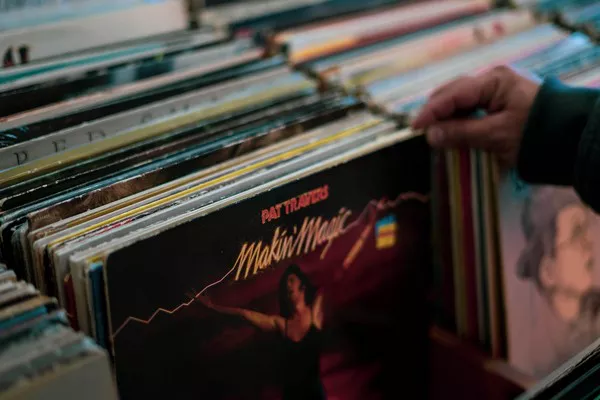Music has been an integral part of human civilization for centuries, serving as a reflection of cultural heritage, societal changes, and a vehicle for expressing emotions and ideas. Throughout history, music has played a pivotal role in shaping societies, documenting historical events, and serving as a universal language that transcends boundaries. Examining the significance of music in history provides insights into the evolution of civilizations, the impact of cultural exchange, and the human experience across different eras.
Cultural Identity and Expression
One of the key reasons why music is important in history is its role in expressing cultural identity. Music serves as a medium through which communities communicate their traditions, values, and beliefs. Different musical genres, instruments, and styles often originate from specific cultural backgrounds, providing a window into the diverse heritage of civilizations. For instance, traditional folk music in various regions worldwide preserves the stories and traditions of indigenous cultures, reflecting their way of life and historical narratives.
Moreover, music acts as a form of artistic expression, allowing individuals and communities to convey emotions, experiences, and societal concerns. From classical compositions to protest songs, music has been a catalyst for expressing dissent, advocating for change, and capturing the zeitgeist of particular historical periods. For instance, during periods of social upheaval like the civil rights movement in the United States, music served as a powerful tool for spreading messages of unity, resilience, and hope.
See Also: Understanding Music Preferences?
Documenting Historical Narratives
Another critical aspect highlighting why music is important in history is its ability to document historical narratives. Throughout the ages, music has been used to memorialize significant events, commemorate victories, and mourn losses. Ballads, anthems, and compositions have preserved stories of wars, revolutions, and societal transformations, providing a unique perspective on historical events.
For instance, compositions such as Tchaikovsky’s “1812 Overture” or Beethoven’s “Symphony No. 3 (Eroica)” symbolize historical milestones and societal shifts. These musical pieces not only serve as artistic creations but also encapsulate the emotions, struggles, and triumphs of the eras in which they were composed, offering a gateway to understanding the socio-political climate of those times.
Moreover, folk songs and oral traditions have transmitted historical knowledge across generations, encapsulating the collective memory of communities. These songs often narrate tales of heroism, struggles for independence, and cultural evolution, preserving valuable insights into the past for future generations.
Cultural Exchange and Global Connections
Music has played a pivotal role in facilitating cultural exchange and fostering global connections throughout history. As civilizations interacted through trade, migration, or conquest, musical influences traversed borders, leading to the evolution and fusion of various musical styles and genres. This exchange of musical ideas and techniques has contributed to the richness and diversity of musical traditions worldwide.
For instance, the Silk Road, an ancient network of trade routes, not only facilitated the exchange of goods but also served as a conduit for cultural interchange, including musical influences. Instruments, melodies, and musical practices diffused along these routes, resulting in a cross-pollination of musical traditions between diverse cultures across Asia, Europe, and Africa.
Moreover, colonization and the transatlantic slave trade led to the fusion of musical elements from different continents, giving rise to genres like jazz, blues, and salsa. These genres reflect the amalgamation of African rhythms, European harmonies, and indigenous musical styles, highlighting the interconnectedness of cultures through music.
Social Movements and Societal Change
Music has been a driving force behind numerous social movements, advocating for change, challenging societal norms, and fostering unity among communities. The power of music to inspire and mobilize masses has been evident in various historical movements, from the fight against apartheid in South Africa to the countercultural revolution of the 1960s in the United States.
Songs like “We Shall Overcome” became anthems of the civil rights movement, instilling courage and solidarity among activists striving for racial equality and justice. Similarly, artists such as Bob Dylan and Joan Baez used their music as a platform to voice dissent against war, social injustice, and political oppression during the turbulent 1960s, influencing a generation and shaping public opinion.
Moreover, music has served as a means of preserving cultural heritage and languages that faced suppression or marginalization. For instance, indigenous communities worldwide have utilized music as a tool for cultural resilience, preserving their languages and traditions in the face of colonization and cultural assimilation.
Technological Advancements and Evolution of Musical Forms
The development of technology has significantly impacted the creation, distribution, and preservation of music throughout history. Advancements in musical instruments, recording techniques, and dissemination platforms have transformed the way music is produced and consumed, leaving a profound imprint on historical developments.
The invention of musical notation in ancient civilizations facilitated the preservation and transmission of musical compositions across generations, enabling composers to document their creations systematically. Subsequent innovations such as the printing press, phonograph, and digital recording technologies revolutionized the accessibility and dissemination of music, allowing compositions to reach wider audiences and transcend temporal and spatial limitations.
Moreover, technological advancements have led to the emergence of new musical forms and genres, shaping the cultural landscape. From the emergence of electronic music in the 20th century to the contemporary genres influenced by digital production tools, technological innovation continues to push the boundaries of musical expression, reflecting societal changes and artistic experimentation.
Emotional and Psychological Impact
Music’s profound emotional and psychological impact on individuals and societies underscores its importance in history. Across cultures and epochs, music has been used for ceremonial purposes, healing rituals, and communal gatherings, evoking a range of emotions and fostering a sense of belonging.
From the therapeutic effects of music on mental health to its ability to evoke nostalgia and enhance cultural experiences, music has the power to transcend language barriers and evoke universal emotions. Historical accounts often highlight instances where music played a pivotal role in uplifting spirits during times of adversity, providing solace, and fostering resilience among communities facing hardships.
Moreover, the study of music’s impact on the human brain and cognition has revealed its potential in enhancing cognitive abilities, improving memory, and stimulating creativity. This aspect of music has implications not only in historical contexts but also in contemporary educational practices and therapeutic interventions.
Conclusion
In conclusion, the significance of music in history is multifaceted and profound, encompassing its role in expressing cultural identity, documenting historical narratives, fostering cultural exchange, driving societal change, evolving with technological advancements, and impacting emotions and cognition. From ancient civilizations to modern societies, music continues to be an indispensable part of the human experience, shaping our understanding of the past and influencing our collective future. Acknowledging the importance of music in history allows us to appreciate its enduring legacy and the pivotal role it plays in shaping our world.

























